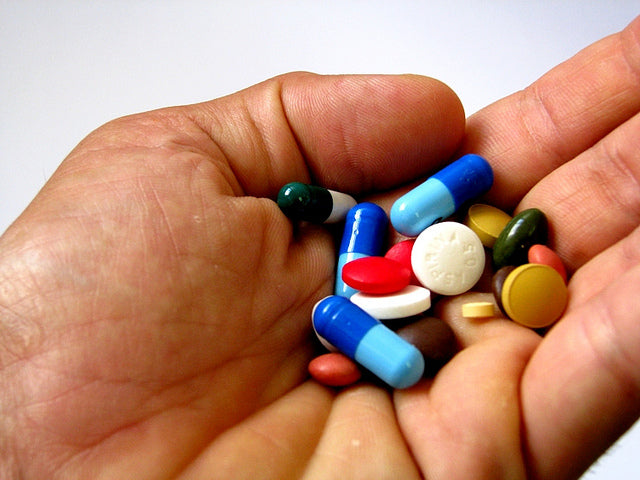
Households, Not Hospitals, Primarily Responsible for Drug Residues in Wastewater
By Dan DeBaunShare
Drugs and pharmaceuticals are listed as emerging contaminants that pose a concern in terms of drinking water contamination. Now a recent study conducted in Germany shows that most of the drug residues found in wastewater originate from domestic households rather than health care institutions such as nursing facilities and hospitals, whose output is considered insignificant by comparison.
Scientists from Leuphana University analyzed data of drug consumption from a German hospital, nursing home and psychiatric clinic, and identified 50 substances that are frequently administered to patients which are commonly discharged into wastewater. Then, using the annually published German Drug Prescription Report which provides a list of drugs prescribed to patients on the public health-care scheme by German physicians, the researchers compared the average total use of these drugs over a 3-year period by health care institutions to the annual use of a selection of substances commonly used by German domestic households.
The findings, which were recently published in Environment International, show that for the large number of drugs tested, the average consumption — and thus contaminants discharged into wastewater — is much higher for domestic households compared to health care institutions. The results reveal that the use of drugs that act on the cardiovascular system or digestive tract is between 15 - 500 times higher in private homes than health care facilities, and as much as 2500 times higher than psychiatric clinics. Even painkiller consumption by hospitals is relatively low by comparison; for example, the use of Metamizole — a commonly prescribed painkiller — in hospitals accounts for only 22% of the total consumption. The only drugs that had significantly high consumption rates in health care facilities were Clomethiazole (a sedative widely used in hospitals), quetiapine and Moclobemide (a neuroleptic and antidepressant respectively, both of which are commonly used in nursing homes). By identifying these Active Pharmaceutical Ingredients (APIs), it is possible to ascribe emissions of specific drug contaminants to certain health care institutions on a regional level.While earlier studies have shown that drugs discharged into wastewater by general hospitals is much lower than that discharged by domestic households, this study is the first to demonstrate that on a national scale, only a very small portion of the drugs discharged into wastewater originate from nursing homes and psychiatric care facilities compared to domestic households.
The methodical approach — modeling the prediction of drug emissions using consumption data — is unique.
"Our study has shown that consumption patterns provide at least as accurate a picture of wastewater pollution by individual substances as wastewater measurements themselves" explained Manuel Herrmann, lead author of the study. "However, with respect to the measurement procedure, our method combines the advantages of being far less complex and less costly. Thus, contamination can easily be predicted, and policy and management can react appropriately and promptly."
With all these drugs floating around in our water ways, and not much known about the cumulative effect of long-term exposure, it would be wise to take precautions and filter drinking water to remove any persistent drugs that could be contaminating your drinking water. The Berkey water filter has recently been tested and shown to remove many pharmaceuticals from the water.
Journal Reference: Manuel Herrmann, Oliver Olsson, Rainer Fiehn, Markus Herrel, Klaus Kümmerer. The significance of different health institutions and their respective contributions of active pharmaceutical ingredients to wastewater. Environment International, 2015; 85: 61 DOI: 10.1016/j.envint.2015.07.020
-
Regular price $234.00 USDRegular priceUnit price / per
-
Regular price $327.00 USDRegular priceUnit price / per
-
Regular price From $367.00 USDRegular priceUnit price / per
-
Regular price From $408.00 USDRegular priceUnit price / per
-
Regular price From $451.00 USDRegular priceUnit price / per
-
Regular price From $478.00 USDRegular priceUnit price / per
-
Regular price $332.50 USDRegular priceUnit price / per
$350.00 USDSale price $332.50 USDSale

Dan DeBaun
Dan DeBaun is the owner and operator of Big Berkey Water Filters. Prior to Berkey, Dan was an asset manager for a major telecommunications company. He graduated from Rutgers with an undergraduate degree in industrial engineering, followed by an MBA in finance from Rutgers as well. Dan enjoys biohacking, exercising, meditation, beach life, and spending time with family and friends.
~ The Owner of Big Berkey Water Filters
















